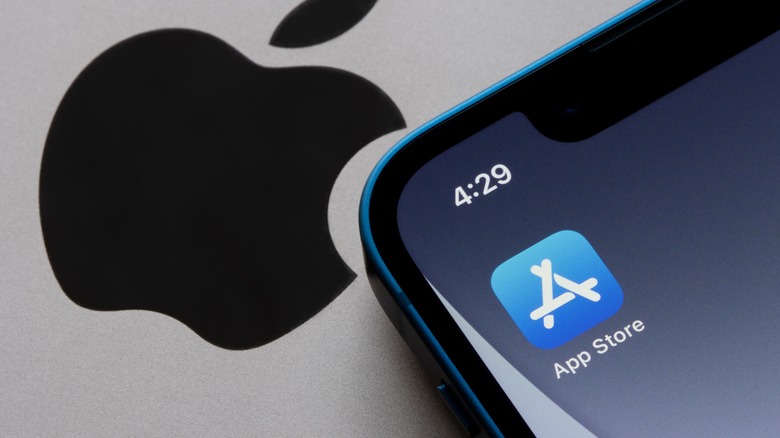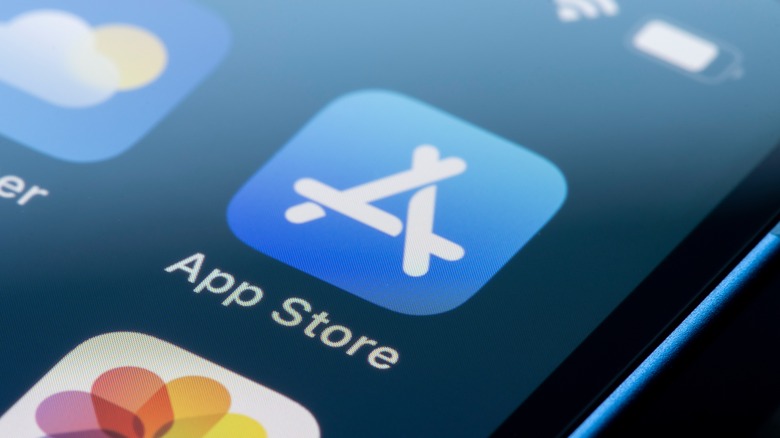Apple Can Put App Store Changes On Hold Ahead Of Supreme Court Petition
Apple has been granted a temporary 90-day relief toward implementing an App Store payment policy, a period in which it can petition the Supreme Court to hear its case, as first reported by The Verge. In April 2023, the Ninth Circuit Court of Appeals upheld that Apple can't stop developers from guiding users toward an alternative payment method. Apple says it's mandatory for developers to use the App Store's payment pipeline for all in-app purchases, ensuring that the company gets up to a 30% cut of the revenue. Apple is so stringent at collecting its cut that it even prohibits developers from informing users about an alternative way to make purchases.
The so-called "anti-steering" mandate has been controversial for years, but it wasn't until the "Fortnite" tussle with Epic Games that it truly became a massive legal headache. Epic Games, without informing Apple, pushed users to an alternative web-based store where they could buy in-game Fortnite items. Apple responded by kicking "Fortnite" out of the App Store for violating its payment policies.
What followed was an ugly court battle, but save for the anti-steering policy, Apple won on all other grounds. Apple appealed that too, in 2021, but a court upheld the decision earlier this year. The court said Apple didn't violate antitrust rules, but told the company that it must end its anti-steering policy. Apple filed an appeal to delay the implementation of this policy change and has finally been granted a 90-day hold so that it can appeal before the apex court.
Apple has bigger wars to win
But it's not just the U.S. where Apple is facing heat from regulatory authorities over its tight App Store payment rules. After a 2021 amendment to the Telecommunications Business Act in South Korea, Apple was forced to let developers offer alternative payment methods in their apps. In December 2021, the Netherlands Authority for Consumers and Markets (ACM) ruled that dating apps can offer an alternative method of payment to users.
But the biggest challenge to Apple's business is brewing up in Europe. Provisions of the landmark Digital Markets Act (DMA) might force Apple to not only allow third-party payment systems but also enable side-loading. In February 2023, the European Commission made it clear that the anti-steering obligations are "neither necessary, nor proportionate," further classifying them as detrimental for users and developers. However, that objection isn't as consequential as the EU's disdain for Apple not allowing users to download apps from other repositories except the App Store.
In April, Bloomberg reported that Apple could finally allow "sideloading" for the first time following the release of iOS 17 later this year. While Apple has repeatedly argued that sideloading will "undermine the privacy and security protections," what's also at stake here is the revenue Apple generates from its App Store payment rules. Apps downloaded from third-party stores or online sources don't have to comply with the mandatory in-app payment rule, which means developers can easily offer external payment outlets for in-app payments while avoiding the 30% Apple tax.

